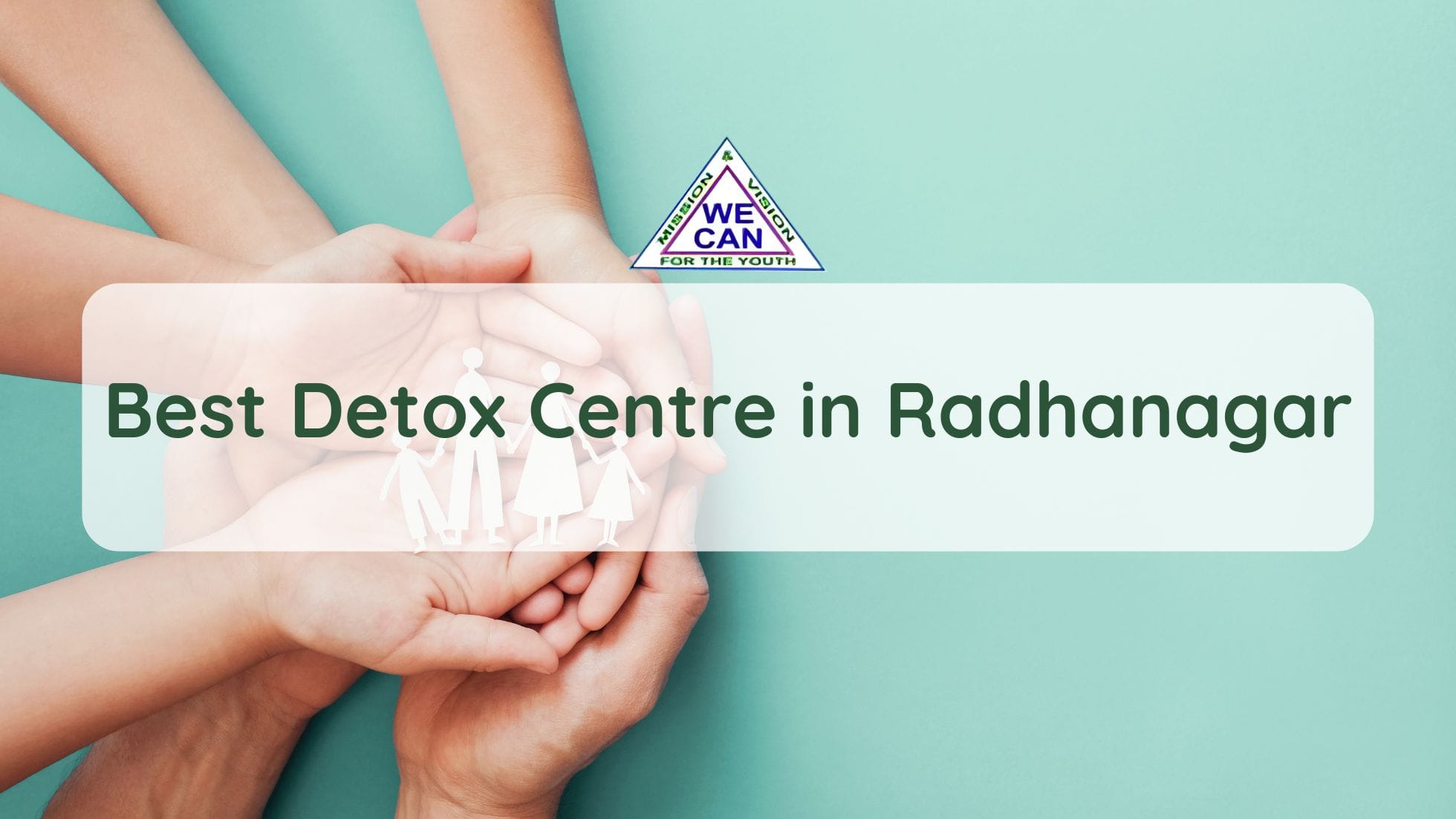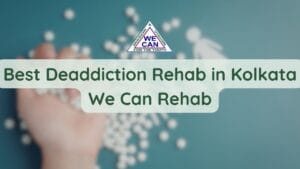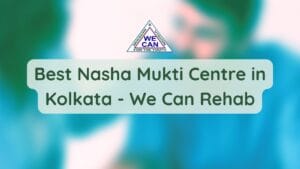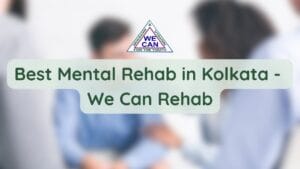If you or someone you care about is struggling with severe addiction, detoxification, commonly known as detox, is a critical first step toward recovery. The primary objective is to eliminate the addictive substance from the body and initiate a clean, substance-free foundation. Early intervention is key to stopping addiction before it causes long-term damage, and that’s where We Can Rehab steps in. As the Best Detox Centre in Radhanagar, we are dedicated to making a meaningful impact in people’s lives.
Our detox plans are tailored to each individual’s specific needs, ensuring a safe, effective, and comfortable detoxification process that sets the stage for long-term recovery. Furthermore, our experienced medical team provides round-the-clock monitoring to manage withdrawal symptoms effectively and ensure each patient’s safety throughout the process.
We go beyond detoxification by incorporating counseling, physical activity, nutritional guidance, and other therapeutic practices to support complete physical and mental well-being. At our detox centre in Radhanagar, we offer a caring and non-judgmental atmosphere where individuals feel safe, supported, and motivated on their journey to recovery.
Our structured aftercare programs provide continued support after detox, helping individuals maintain sobriety and avoid relapse through consistent guidance and resources. But there are still many aspects that we need to talk about, so in this article, we will shed light on those aspects.
Drug Detox in Radhanagar – The Condition of Addiction in India
Addiction continues to be a pressing public health concern in India, involving the widespread use of various psychoactive substances. According to a comprehensive national survey conducted in 2018 by the Ministry of Social Justice and Empowerment in collaboration with NDDTC, AIIMS, millions of individuals across the country are currently engaged in the use of substances such as alcohol, cannabis, and opioids, with these being the most commonly abused.
In response to this growing crisis, the government has launched several key initiatives under the National Action Plan for Drug Demand Reduction. Programs like the Nasha Mukt Bharat Abhiyaan and support for Integrated Rehabilitation Centres for Addicts (IRCAs) are central to the fight against substance abuse, aiming to prevent, treat, and rehabilitate individuals battling addiction.
The UNODC World Drug Report 2024 reflects a concerning global trend, an increase in drug consumption across continents. In this context, India is grappling with rising addiction rates across all age groups, genders, and socio-economic backgrounds. Although treatment and prevention programs have expanded, a substantial gap in accessibility and reach remains, particularly affecting women and children, who often lack adequate support systems or access to care.
India’s addiction crisis is not uniform, certain states report higher prevalence of substance use. West Bengal, including areas like Radhanagar, is among the states severely impacted by the consumption of narcotics and addictive substances. According to data released by the United Nations Office on Drugs and Crime, substance abuse in this region is increasingly affecting communities, leading to mental health issues, economic instability, and social disruption.
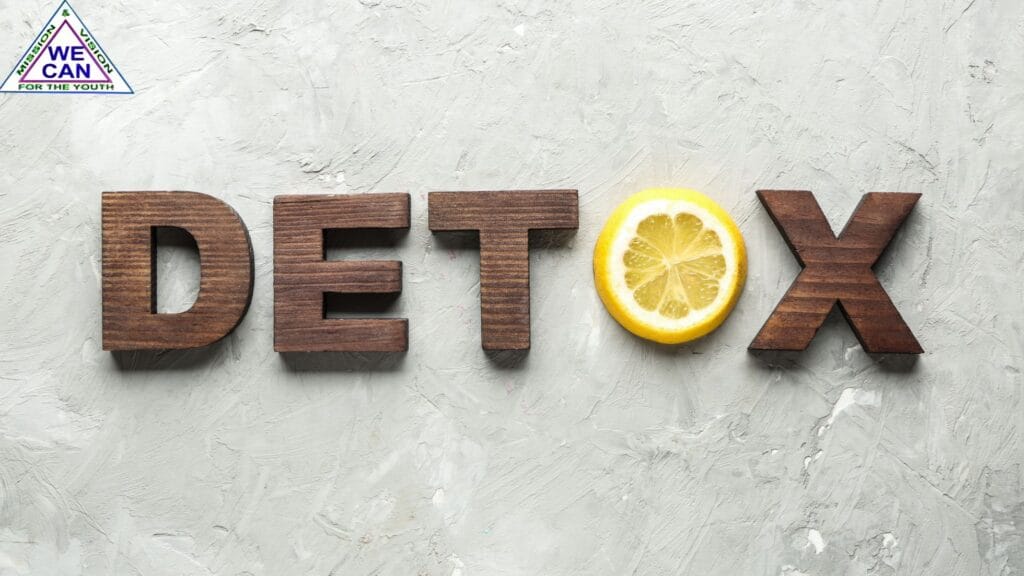
What are the official figures? Read the Statistics State-Wise
According to government statistics, more than 15% of the population uses drugs. For every 1000 individuals, about 25% struggle with chronic alcoholism. The situation is exacerbated by the fact that only 20% of the required beds for psychiatric care and detoxification are available, leading to 80% of the nation’s inpatient beds being vacant.
| States | Most Common | Second Most Common | Third Most Common |
|---|---|---|---|
| Andhra Pradesh | Alcohol 73.0 | Cannabis 11.3 | Inhalants 3.6 |
| Assam | Alcohol 59.8 | Cannabis 24.4 | Heroin 4.1 |
| Bihar | Alcohol 37.1 | Cannabis 28.9 | Heroin 14.9 |
| Goa | Alcohol 84.8 | Cannabis 2.6 | Opium 1.3 |
| Gujarat | Alcohol 59.3 | Heroin 7.7 | Cannabis 5.4 |
| Haryana | Alcohol 51.4 | Opium 10.1 | Cannabis 6.5 |
| Jammu and Kashmir | Alcohol 21.1 | Opium 10.5 | Heroin 7.9 |
| Karnataka | Alcohol 64.3 | Heroin 1.3 | Cannabis 0.4 |
| West Bengal | Alcohol 34.0 | Heroin 32.1 | Cannabis 16.5 |
| Name of the substance | Estimated Number of Users(Age 10-17 Years) | Estimated Number of Users(Age 18-75 Years) |
|---|---|---|
| Alcohol | 30,00,000 | 15,01,16,000 |
| Cannabis | 20,00,000 | 2,90,18,000 |
| Opioids | 40,00,000 | 1,86,44,000 |
| Sedatives | 20,00,000 | 1,05,80,000 |
| Inhalants | 30,00,000 | 51,25,000 |
| Cocaine | 2,00,000 | 9,40,000 |
| Amphetamines Type Stimulants(ATS) | 4,00,000 | 15,47,000 |
| Hallucinogens | 2,00,000 | 11,01,000 |
Detox Rehab in Radhanagar Provides Effective Methods of Detoxification
The journey to overcoming addiction begins with detoxification, a medically supervised process that aims to safely manage withdrawal symptoms. Furthermore, cleanse the body of harmful substances such as alcohol or drugs. Detox is not a standalone cure for addiction, but it lays the foundation for long-term recovery. By preparing individuals physically and mentally for further treatment.
At the Best Detox Centre in Radhanagar, We Can Rehab follows a structured, evidence-based approach using three key methods of detoxification:
- Cold Turkey (Abrupt Cessation)– In this method, the individual stops using the substance abruptly. While it may seem straightforward, it can be dangerous, especially for those with severe dependencies. It must always be conducted under strict medical supervision to manage potentially life-threatening symptoms such as seizures, heart irregularities, or hallucinations.
- Tapering – It involves gradually reducing the dosage of the addictive substance over a specific period. This method helps minimize the severity of withdrawal symptoms. It is particularly effective for substances like opioids, benzodiazepines, or certain prescription medications.
- Medication-Assisted Detox – In some cases, prescription medications are used to ease withdrawal symptoms, reduce cravings, and prevent medical complications. Examples include:
- Methadone or buprenorphine for opioid detox
- Benzodiazepines for alcohol withdrawal
- Antidepressants or antipsychotics if psychological symptoms arise during detox
Can Detox Cause Withdrawal Syndrome?
Yes, detox can lead to withdrawal syndrome, especially when done without medical supervision. As the body adjusts to functioning without the addictive substance. Individuals may experience a range of symptoms depending on the substance and level of dependence. Including shaking or tremors as well as muscle pain and fatigue.
Not only that, patients can also experience nausea, vomiting, and stomach upset. Furthermore, some symptoms include sweating, chills, insomnia or hypersomnia, mood swings, irritability, paranoia, confusion, or hallucinations. Moreover in severe cases, seizures or psychosis, depression and anxiety.
Why Do You Need Detox Facilities in Radhanagar?
We Can Rehab, the leading Detox Centre in Radhanagar offers more than just medical care. We provide a safe, nurturing space for individuals seeking both physical and emotional recovery. At We Can Rehab, our focus is on guiding individuals through detoxification with compassion, respect, and personalized care that honors each person’s unique journey.
Our expert team takes the time to understand each individual’s background, needs, and challenges. Offering treatment that supports both detox and long-term healing. Through our dedicated approach, we aim to restore hope, inspire personal transformation, and provide constant encouragement throughout the recovery process. It is our vow as the best detox centre in Radhanagar to eradicate addiction from the city.
FAQs
- What is detoxification, and why is it necessary?
- Detoxification is the process of removing harmful substances from the body. It is a vital first step in addiction recovery to safely manage withdrawal symptoms and prepare individuals for long-term treatment.
- How long does the detox process typically last?
- The duration of detox varies depending on the substance used, the severity of addiction, and individual health conditions. It generally ranges from a few days to two weeks.
- Are there any risks or discomforts associated with detox?
- Yes, detox can involve physical and emotional challenges, including withdrawal symptoms. However, with professional medical supervision, these risks are managed to ensure patient safety and comfort.
- Which substances commonly require medical detox?
- Substances such as alcohol, opioids, benzodiazepines, and certain prescription medications often require medically supervised detox due to the potential for severe withdrawal symptoms.
- What follows the detoxification process?
- After detox, individuals usually enter a structured rehabilitation program that includes therapy, counseling, and life skills development to address the psychological and social aspects of addiction.
- What does psychosocial rehabilitation (PSR) involve?
- PSR is a therapeutic approach that helps individuals with mental health and addiction challenges. Reintegrate into society by building emotional resilience, social skills, and independence.
- When is medication used during detox?
- Medication is administered during detox when necessary to manage withdrawal symptoms, reduce cravings, and prevent potential complications, depending on the individual’s condition.
- What therapeutic methods are used in psychosocial rehabilitation?
- Psychosocial rehabilitation includes a variety of therapies such as cognitive behavioral therapy (CBT). Group and individual counseling, mindfulness practices, vocational training, and social skills development.
- Is patient confidentiality maintained at the detox and rehab facility?
- Yes, strict confidentiality is maintained. All personal information and treatment details are handled with the highest level of privacy and professionalism.

